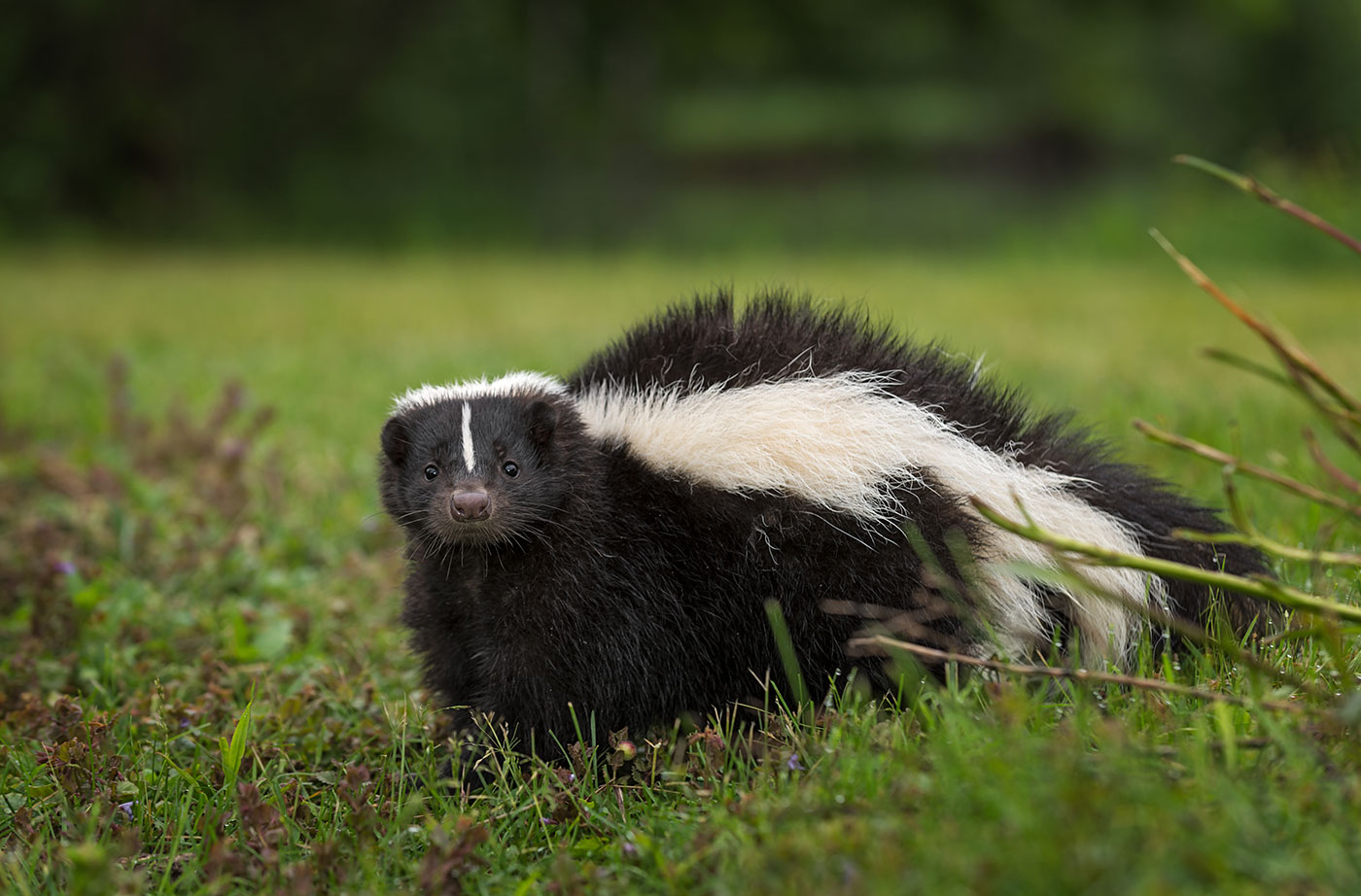Skunks are often misunderstood creatures, notorious for their potent defensive spray and unique appearances. While many people associate skunks with their unpleasant smell, there’s so much more to these fascinating mammals than meets the eye. They play a crucial role in their ecosystems, have interesting social behaviors, and possess a variety of adaptations that help them survive in the wild. In this article, we’ll delve deeper into the world of skunks, exploring their biology, behavior, and the misconceptions that surround them.
These small to medium-sized mammals belong to the family Mephitidae and are primarily found in North America. Skunks are known for their distinctive black and white fur patterns, which serve as a warning to potential predators about their ability to spray a noxious substance. However, their striking appearance and unique adaptations make them one of nature's most intriguing animals. Despite their reputation, skunks are generally shy and solitary animals that prefer to avoid confrontation whenever possible.
As we explore the lives of skunks, we will answer common questions about their habits, habitats, and the myths that often cloud their reputation. From their diet to their mating rituals, understanding skunks can provide valuable insights into the delicate balance of ecosystems they inhabit. Let’s embark on this journey to uncover the truth about these incredible creatures and dispel some of the myths associated with them.
What Do Skunks Eat?
Skunks are omnivorous, which means they have a varied diet that includes both plant and animal matter. Their diet typically consists of:
- Insects
- Fruits
- Small rodents
- Bird eggs
- Flowers and seeds
Skunks are known for their foraging skills and will often dig in the ground for grubs and insects. They play an essential role in controlling insect populations and dispersing seeds, contributing to their ecosystems.
Where Do Skunks Live?
Skunks are highly adaptable animals that can thrive in various environments, including forests, grasslands, and urban areas. They prefer habitats with ample food sources and shelter, such as:
- Wooded areas
- Fields
- Suburbs
- Swamps
In urban settings, skunks often find refuge under decks, in sheds, and in abandoned burrows. Their adaptability to human environments can lead to conflicts, particularly in residential areas.
How Do Skunks Defend Themselves?
Skunks are best known for their infamous defensive spray, a pungent liquid that can be accurately aimed at potential threats. This spray is a mixture of sulfur-containing compounds, which create a strong and lingering odor. When threatened, skunks will:
- Stamp their feet as a warning
- Lift their tails to signal readiness to spray
- Spray their assailant if they feel cornered
This behavior is often enough to deter predators, as the spray can cause temporary blindness and severe irritation. Interestingly, skunks will only spray as a last resort, usually preferring to flee from danger.
Are Skunks Social Animals?
Skunks are generally solitary creatures, though they may exhibit social behaviors during specific times of the year. They are mostly nocturnal, foraging for food at night and resting during the day. However, during the breeding season, male skunks may compete for the attention of females, and mothers will raise their young together in communal dens.
How Do Skunks Reproduce?
The breeding season for skunks typically occurs in late winter to early spring. Female skunks are known to be selective when choosing a mate, and after a gestation period of approximately two months, they will give birth to a litter of 2 to 10 young. The kits are born blind and helpless, relying entirely on their mother for care. Skunk mothers are attentive and protective, teaching their young crucial survival skills.
What Myths Surround Skunks?
Despite their negative reputation, many myths about skunks are unfounded. Some common misconceptions include:
- Skunks are aggressive and will attack humans.
- All skunks can spray at will.
- Skunks are dirty animals.
In reality, skunks are generally shy and prefer to avoid human interaction. They only spray when they feel threatened, and they are relatively clean animals that groom themselves regularly.
Conclusion: Why Understanding Skunks is Important
Skunks play a vital role in maintaining ecological balance. By educating ourselves about these misunderstood creatures, we can help reduce conflicts and promote coexistence between skunks and humans. Their unique adaptations and habits are a testament to the complexity of wildlife, and understanding their role in the ecosystem can lead to greater appreciation for these fascinating animals.
In summary, skunks are remarkable mammals with a variety of adaptations that allow them to thrive in diverse environments. By dispelling myths and understanding their behavior, we can foster a greater respect for nature and its inhabitants.



